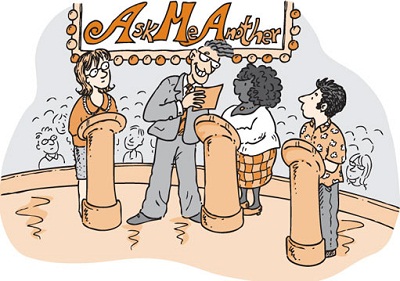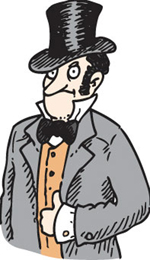2 Knowledge
Knowledge is what you know. For example, a plumber knows a lot about taps and bathroom fixtures. But is that all he or she knows? The same plumber might also be self-employed and know a great deal about tax forms. They might have worked in a particular geographical area and know it very well. The mix of what anyone knows is highly individual and depends on the experiences they have had.
Traditionally, learning is about knowing facts and having to absorb and remember information that someone else says is important. You may associate this type of learning with what you did at school, where you might have been told that you had to learn many facts associated with a subject in order to pass an exam.
Evidence of learning is sometimes linked to building an increasingly impressive store of such facts. Television quiz shows tend to make us think that learning is simply about knowing more facts than other people.

The problem with taking this view of learning is that people who seem to know the most facts are seen as being the ‘best’ learners. While it is great to have a lot of facts at our fingertips, this course aims to help you start to challenge this as the only view of learning.
Have you read Hard Times by Charles Dickens? Dickens portrayed the facts-obsessed schoolmaster Thomas Gradgrind as having quite a narrow view of learning, when he gave him these words:
Now what I want is Facts. Teach these boys and girls nothing but Facts. Facts alone are wanted in life. Plant nothing else. You can only form the minds of reasoning animals upon Facts: nothing else will ever be of any service to them … Stick to Facts

Of course, it is possible to test some knowledge, especially the more factual information that someone is supposed to have learned. Maybe you are quite good at learning facts yourself? In some areas of life it is very useful; for example, in mathematics, engineering or medicine. But sometimes it can be very difficult to know how much long-term understanding people have acquired.
Anything we learn undergoes complex changes as our brains try to fit it in with what we already know. So, if you ask ten people what they made of the same book or lesson, you may well get ten different answers. Perhaps there are as many ways of understanding something as there are people…
Activity 2 What do you know?
This may be quite difficult, but give it a go. Think about some of the things you know. Try to identify six of the most useful pieces of knowledge you have gained in the last year, then try to identify what each of them is useful for.
Note down your thoughts in your learning journal.
Discussion
You may perhaps have thought about things like factual knowledge needed for work, knowing something about a friend or relative that helped you to make them happy or knowing where to get a cheaper car. Thinking about what you know should help you realise just how much knowledge you already have – so much, that you probably found it hard to focus on just six pieces of knowledge!
